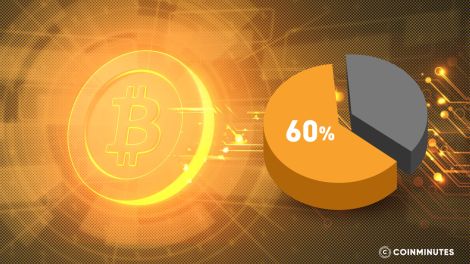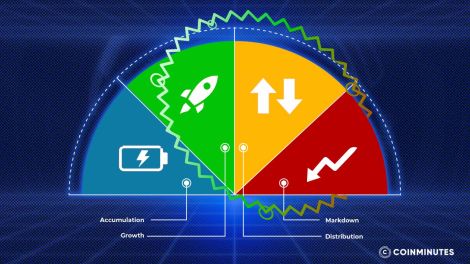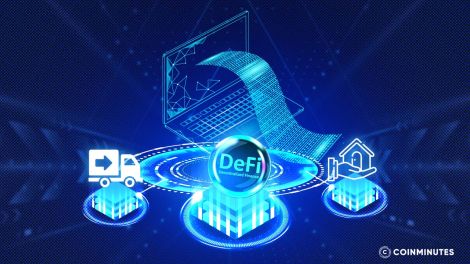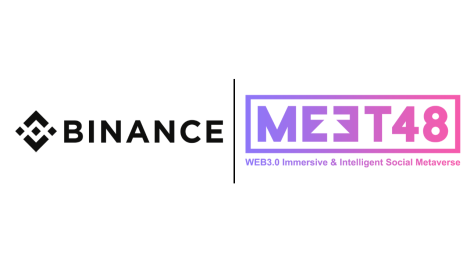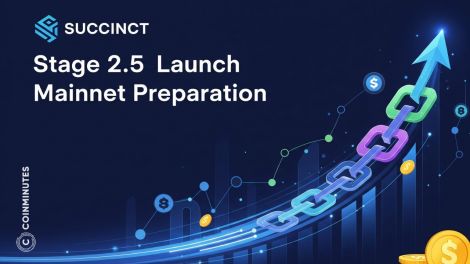DeFi Protocol Grove Secures $1 Billion Funding to Develop Real-World Asset Business

Traditional finance just placed its biggest bet ever on crypto.
In what industry insiders are calling a watershed moment, DeFi protocol Grove has secured a staggering $1 billion investment from lending giant Sky. This isn't just another funding announcement in the crowded crypto space.
It's Wall Street's admission that blockchain finance is here to stay.
Are Real-World Assets Crypto's Killer Application?
Your mortgage might be coming to the blockchain sooner than you think.
Real-world assets—RWAs in crypto speak—represent the biggest untapped opportunity in decentralized finance. But what exactly are they?
RWAs take conventional financial instruments you already know—mortgages, corporate loans, invoices, carbon credits—and transform them into tradable blockchain tokens.
The transformation is profound. Static, illiquid assets suddenly become programmable digital tokens that anyone can buy, trade, or build upon.
Have you checked the growth trajectory lately?
From virtually nonexistent in 2021, the RWA market has exploded to $5.7 billion today. Industry projections suggest this figure could reach an almost incomprehensible $16 trillion by 2030.
Why this gold rush? The answer lies in a rare perfect match of needs.
Traditional finance desperately craves what blockchain offers: efficiency. Settlement times collapse from days to minutes. Administrative costs vanish. Illiquid assets become instantly tradable.
Meanwhile, DeFi platforms hunger for what traditional finance provides: stability. Instead of relying solely on volatile crypto prices, they can incorporate steady cash flows from real-world businesses.
What Are CLOs and Why Should You Care?
Grove isn't tokenizing just any assets with its billion-dollar war chest.
They're targeting Wall Street's most sophisticated lending instrument—one that most people have never heard of.
Collateralized Loan Obligations. The name itself sounds intimidating.
In simple terms, CLOs bundle together dozens or hundreds of corporate loans, then slice them into different risk levels. Conservative investors purchase the safer slices with lower returns. Risk-seekers buy the riskier pieces offering higher yields.
"CLOs represent a $1 trillion market that has historically been the exclusive playground of institutional investors," explains financial analyst Sarah Chen. "Minimum investments typically start in the millions."
The traditional CLO model suffers from three critical flaws:
-
Your money gets trapped for years once invested.
-
Only the ultra-wealthy can participate.
-
The paperwork alone costs millions to manage.
Grove's blockchain solution demolishes all three barriers simultaneously. CLO tokens trade instantly on crypto exchanges. Anyone can buy even tiny fractions. Smart contracts handle administration automatically.
The result?
Investment opportunities once reserved for Wall Street elites become available to everyday investors.
That's the kind of financial democratization blockchain promised all along.
How Does Grove Actually Connect These Two Worlds?
Building a bridge between Wall Street and crypto requires entirely new infrastructure.
At its core, Grove serves as the crucial middleman connecting traditional lenders with blockchain-based capital. Neither side could reach the other without this specialized interface.
"We faced a fundamental challenge," acknowledges Grove's co-founder. "Creating compliant on-ramps for institutional money while preserving what makes DeFi powerful required rethinking the entire system."
How does it actually work?
Grove's architecture consists of three essential components working in concert:
An origination layer collaborates with banks and lenders to tokenize assets through secure, regulation-friendly processes. This transforms traditional loans into blockchain-compatible tokens.
A verification system maintains strict compliance while enabling on-chain transactions. This ensures all regulatory requirements are met without sacrificing the benefits of blockchain.
A yield distribution mechanism efficiently channels returns from real-world loans directly to crypto investors. This ensures that token holders receive their share of interest payments automatically.
For technically-minded readers, Grove employs a specialized Automated Market Maker designed specifically for stable RWA tokens. This eliminates the wild price swings typically associated with crypto trading.
But perhaps Grove's most significant contribution is something developers call "composability." Their platform creates a foundation that other DeFi protocols can build upon, potentially creating an interconnected financial system spanning both traditional and crypto worlds.
Think of it as adding a crucial new wing to the DeFi building.
Why Would Sky Commit $1 Billion to This Vision?
Sky didn't stumble into this investment by accident.
Currently managing over $7 billion in assets, Sky has been methodically expanding beyond its crypto lending roots. The protocol's leadership recently unveiled an ambitious "Endgame" roadmap where Sky evolves into a decentralized credit marketplace connecting specialized lending platforms.
Where does Grove fit?
Perfectly positioned as the "RWA Star"—the dedicated platform handling all real-world asset integration within Sky's growing ecosystem.
"This represents Sky's largest strategic investment by far," notes DeFi researcher Alex Thompson. "It signals extraordinary confidence not just in Grove, but in the fundamental premise that RWAs represent DeFi's future."
By channeling $1 billion specifically into CLOs, Sky gains exposure to stable corporate debt yields while maintaining its decentralized principles. The strategic move positions Sky to compete not just with other DeFi protocols but directly with traditional asset managers like BlackRock and Pimco.
What does this mean for you as a Sky user?
Access to yield sources that don't collapse when crypto markets tumble—a crucial advantage during inevitable bear markets.
After the volatility of recent years, that stability looks increasingly attractive to both retail and institutional investors.
Who's Actually Winning the RWA Race?
Grove isn't pioneering untouched territory. Several established players have already staked claims in the RWA space.
Centrifuge blazed this trail years ago. They've already tokenized over $300 million in assets, focusing primarily on trade receivables and private credit for small and medium businesses.
Maple Finance wrote the playbook for institutional crypto lending, facilitating over $2 billion in loans to established firms and recently expanding into tokenized treasury products.
Goldfinch carved out a specialized niche in emerging market lending, deploying over $100 million across developing economies in Africa, Southeast Asia, and Latin America.
So what makes Grove different?
Grove enters the market with immediate institutional backing and a billion-dollar war chest specifically earmarked for its target assets.
"While competitors spent years slowly accumulating capital, Grove launches with immediate firepower," explains DeFi strategist Michael Lim. "That's an extraordinary advantage in capturing market share quickly."
But having money doesn't guarantee success in this complex space. Execution will ultimately determine whether Grove can convert its financial advantage into market dominance.
The competition has just begun.
What Dangers Is Everyone Ignoring?
Beneath the excitement surrounding Grove and the broader RWA narrative lurk serious challenges that few are discussing openly.
Regulatory uncertainty stands as the most immediate threat. Tokenizing regulated financial instruments creates a compliance labyrinth spanning multiple jurisdictions and regulatory frameworks.
"The legal structure behind tokenized RWAs remains largely untested in court," warns regulatory expert Jennifer Parks. "While compliant issuance seems possible, secondary trading raises questions regulators haven't fully addressed."
Have you considered what happens when things go wrong?
Unlike pure crypto assets, RWAs require reliable connections to real-world legal systems. This creates potential breaking points where blockchain's immutability collides with traditional contract enforcement.
What happens when loans default? How are recovery processes handled? Can token holders actually exercise their claims on physical assets?
These questions highlight the hybrid nature of RWAs—neither fully traditional nor completely decentralized—and the unique challenges this middle ground creates.
Smart money watches these issues carefully before diving in.
Is Your Mortgage About to Move to the Blockchain?
Despite significant hurdles, RWAs represent DeFi's logical evolution beyond its crypto-native origins.
The numbers don't lie. While the broader DeFi market has stagnated around $50 billion in total value locked, RWA protocols continue growing steadily, even through the harshest crypto winter.
By 2027, industry experts predict tokenized RWAs could represent over half of all value in DeFi—a fundamental shift in the ecosystem's composition.
For Grove, success hinges on execution across multiple fronts: technical reliability, regulatory compliance, institutional adoption, and seamless integration with Sky's ecosystem.
But the stakes extend far beyond any single protocol's fate. Grove's billion-dollar launch marks a pivotal moment in finance's digital transformation—when blockchain technology begins absorbing traditional assets at institutional scale.
Will your mortgage eventually live on a blockchain? Will corporate bonds trade as easily as cryptocurrencies? Will the line between DeFi and traditional finance eventually blur completely?
Grove's founders are betting everything that the answer is yes.
And if they're right, the financial system you've known your entire life will never be the same.
The question isn't whether finance will transform—it's whether you'll be ready when it does.
 English
English
 Vietnamese
Vietnamese

